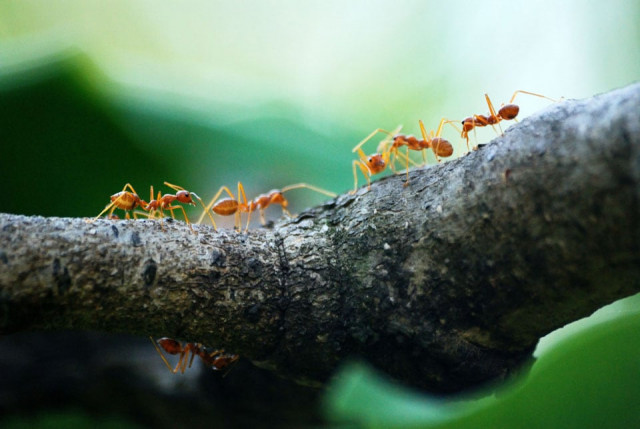How To Get Rid Of Ants
It’s never fun to find ants scurrying in your home or yard, but there’s no need to panic if you do. You’re not alone. Ants often find their way into homes, where we keep food and other tempting items. They can certainly be an alarming sight, forming elaborate trails into your home, but don’t worry. There are steps you can take to mitigate the problem. Here are some ways you can get rid of ants.
Ants You Might Find In Your Home
First, let’s take a look at what kind of ants you may have in—or around—your home. Understanding what kind of ants you might be dealing with is the first step in addressing the problem. Ants that are common to the Brisbane area include, but are not limited to:
Fire Ants
These aggressive and invasive ants will often bite unsuspecting victims without warning or prevocation, which is not surprising given their somewhat ominous name. Fire ants are easily recognizable by their brownish red to brown colors. They also have distinct mounds of loose soil, and they both sting and bite. Fire ant stings can be painful and itch, even after the ant is long gone.
Yellow Crazy Ant
Yellow crazy ants, named for their erratic movement when disturbed, are highly invasive. Recognizable with slender, light colored bodies, narrow heads, and very lengthy antennae. Yellow crazy ants do not sting, but instead spray formic acid.
Meat Ant
Meat ants are similar in color to fire ants, but identifiable with a distinctive iridescent sheen. They form large and round mounds, easily recognizable by the small pebbles on top, and have a mild bite.
Funnel Ant
Funnel ants are not particularly aggressive, but if they perceive their nest has been disturbed, they can sting. Funnel ants are named for their nests, which have a funnel-like appearance at the top. Funnel ants build very large nests and can significantly disturb the soil.
Green Head Ant
Green Head Ants are very common. In fact, they’re one of the most common insects in Australia. Green head ants are easily recognizable with their distinctive greenish, metallic coloring. Green head ants do not bite but can leave a nasty sting, instead.
Prevention
Whether your focus is on preventing infestation in the first place, or you want to ensure it simply doesn’t happen again, prevention is essential. Here are some prevention strategies that can help mitigate further ant-related problems in your home or workspace.
Cutting Off Their Supply
One of the first steps you can take to prevent further infestation is securing food. Ants—like many household pets—are attracted to food, and wiping off counter tops and keeping a clean kitchen can go a long way towards prevention. Be sure to empty trash bags at night, and clean up any loose food debris.
Home Treatment
Ants are small, and they can enter through tiny spaces. This may seem like a simplistic approach, but sometimes simplicity works. They can get in through the tiniest of cracks and holes, but you can simply seal the exits. Look for cracks and gaps around windows and doors, as well as mouldings and weather stripping, and consider using a sealant of your choice—such as caulk or silicone—to ensure these pests don’t have easy access to your home.
Garden Management
Consider your garden. What plants do you have growing? Ants are often attracted to one thing: sugar. And some of your plants may produce it. Ants are usually attracted to sweet-smelling flowers like peonies. By contrast, some plants actively repel ants, especially strong-smelling plants like rosemary, lavender, and mint.
How To Get Rid Of Ants
Visit my Business Website Please Like and Share this article

To distribute this article more widely To manage this article or write your own article simply LOGIN
| ||||||


















